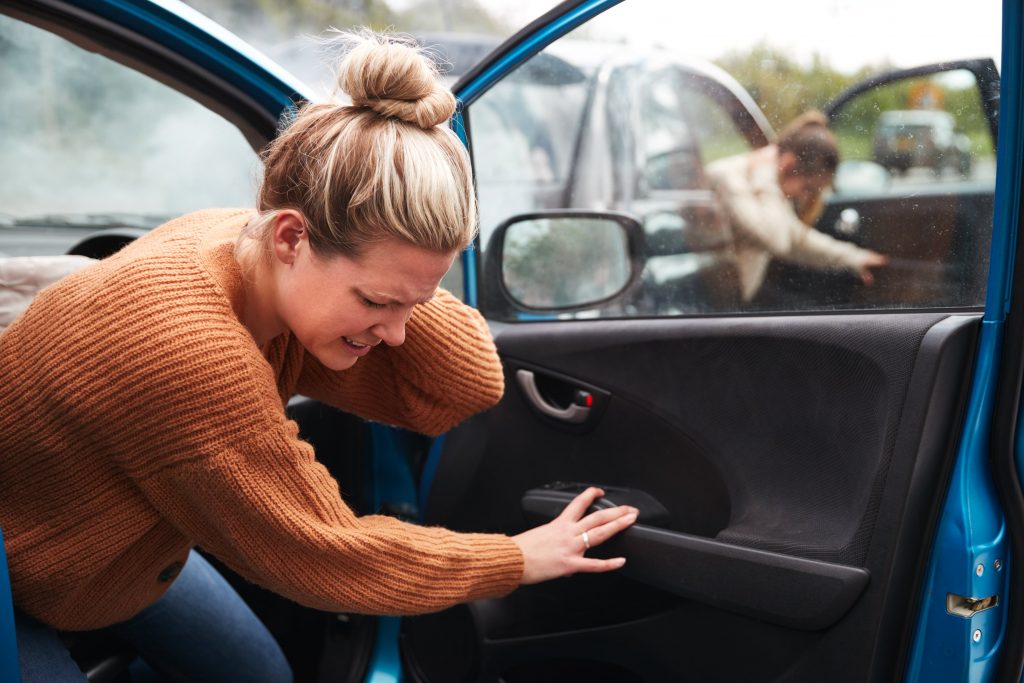Passenger accident claims
Many people might not be aware that it’s not only the driver involved in a motor accident who can make a personal injury claim, passengers can too.
You may be hurt as the result of a road accident which was not your fault, you could even suffer life-changing injuries because someone else has been negligent and that gives you the right to seek compensation.
Making a claim after an accident as a passenger
Whether you are the driver or passenger the process is the same. Basically you have to prove that the accident was the fault of another person, so if you were for example a drunk passenger who grabbed hold of the wheel causing a collision then you would be to blame.
If however, the accident was caused by the driver of the vehicle you were travelling in, or maybe by another driver who hit the car from behind then a passenger claim is highly possible. You can make a compensation claim if:
- Your accident happened in the last three years
- It was somebody else’s fault
- You were injured as a result

Can I make a claim even if the accident was caused by the vehicle I was travelling in?
Yes you can! If it can be proven that the person at the wheel didn’t drive safely or didn’t maintain their vehicle properly, you can seek compensation.Common situations which may arise include:
- Where the driver of the vehicle in which you were a passenger hit another vehicle
- Where the driver of the vehicle in which you were a passenger collided with an object, a wall, tree, lamppost etc.
How can I prove the accident wasn’t my fault?
You need to gather as much evidence as you can – if that is possible. Clearly if you are seriously injured you won’t be in a position to do this but if you can it will help with your case. Information that will be relevant includes: the time and date of the accident, names and addresses of drivers and any witnesses, registration numbers of the vehicles involved and details about police involvement. However, being unable to supply these details doesn’t mean the end of your personal injury claim.
Differences between public transport and private transport
The main difference between public and private transport is that public transport drivers have received specific training to ensure the safety of all passengers when they are in the vehicle.
But in the same way you can claim if you are a passenger in a private vehicle if you are a passenger on public transport and are involved in an accident then you can also make a claim.

Buses and coaches may only account for around two percent of road accidents a year and according to latest figures there was a total of 2,042 injuries to passengers and members of the public (non workforce) in stations or on trains during 2020-21 compared to the 115,333 casualties of all severities involved in UK vehicle accidents in 2020. These figures are pretty low, which is why we may not normally associate compensation and being a passenger on public transport.
However, what is absolutely clear is that if a vehicle is registered as a form of public transport, then you can claim compensation if you have been involved in an accident. This could include:
- Buses/minibuses
- Trams
- Taxis/Private Hire vehicles
- Ferries
- Trains/Metros
As you can see you don’t have to be a passenger in a road vehicle when it comes to public transport. You could be travelling on a ferry or by rail.
You don’t even need to have been involved in a collision, as the accident could be a result of something that happened within the vehicle. Maybe unsecured luggage hitting you, or you fall off a broken seat or suffer an injury because of a slippery surface.You also need to decide who is liable for your accident. In some cases it will be the company that owns the mode of transport but if you’re attacked by a drunken passenger the police will be involved and they will award the compensation.
The main cause of your accident could be due to:
- An aggressive passenger
- The driver
- Other drivers involved in the accident
- The manufacturer of the vehicle
- The environment (in which case this will be a responsibility of local government)
Examples of common injuries for passengers
Severe
These are injuries that can be life-threatening or life-changing
- Broken back or neck
- Head injury and unconsciousness
- Chest injuries
- Multiple injuries with unconsciousness
Moderately serious
These can also be life-changing and can include
- Loss of a limb
- Fractured pelvis
- Multiple severe injuries while remaining conscious
- Deep wounds
Less serious
While not life-threatening or life-changing, less serious injuries can have an impact in terms of reduced mobility and time off work. The most common injuries are:
- A fractured lower leg, ankle or foot
- A fractured arm, collarbone or hand
- Deep cuts and/or lacerations
- A less serious head injury
Minor injuries
These are injuries that may mean a short time off work but for which you still may be able to make a claim and they include:
- Whiplash or neck pain
- Shallow cuts, lacerations or abrasions
- Sprains and strains
- Bruising
- Shock
Who is at fault?
In a nutshell it’s the person who caused the accident who’s at fault. This could be a member of your family, your boss or a close friend and understandably this can make claiming a difficult decision, however be reassured that any compensation you might receive will be awarded by the insurance company and not anyone else.
If you have any questions about an accident you may have been involved in as a passenger and want to know if you can make a personal injury claim we are here to help. Find all our contact details at the here at the contact page.


